R. Paul Wilson On: The Power of Wishful Thinking

I recently spent a weekend consulting someone about ways to conceal effective gaming strategies online, and the topic of less profitable systems came up. In that discussion, a mutual acquaintance extolled the virtues of a new roulette betting pattern, so I spent a little time trying to convince them that this offered no advantage, only impacting how quickly they might lose in a given session. Despite having numbers and experience on my side, no matter how hard I tried, this friend would not accept that his new approach to playing was not "a lock" on the game!
I've been here before, especially with simpler (and easier to disprove) strategies like the Martingale or Laboucher (or Reverse), and while I'm not seeking to discourage a gambler from gambling, I am always amazed at how an idea roots itself in someone to effectively defeat logic or any amount of hard evidence! This phenomenon reveals an important lesson about human beings we can all learn from to perhaps recognise when we fall into similar traps in other walks of life.
I've spoken before about the need to analyse advantage play (and straightforward gambling) with a cold, clear eye in order to fully understand profits and losses, and while some might say this goes against the objective "to just have fun", many of us gamble enough that we should know exactly where our account stands in terms of black and red.
What tends to defeat us is our own skewed perspective on how we're doing over time, and at the heart of all of this is the idea that we can succeed in games where the odds are always against us. That's a very simple notion, yet it's incredibly easy to fall under a spell if we only choose to remember when we win!
This susceptibility to our own ego and our preferred version of events is also a powerful tool when used against us by con artists. The following story is a clear illustration of how a story can defeat logic based on what we want to be true. It has nothing to do with gambling, so perhaps the lesson will be easier to learn!
Cuban Cigars and the Art of Deception
I recently travelled around Europe with a dear friend who, in addition to being a talented sleight of hand artist, a gastronomer and a persistent gambler, is also a cigar aficionado.
In Madrid, he arranged to meet a shady associate in a dark bar off the Gran Via, where my friend collected two plastic bags stuffed with enormous Cuban cigars. In any genuine cigar store, this transaction would cost thousands of dollars, but my friend secured this bulging bag of stogies for just a couple of hundred euros and then proceeded to brag about the deal for days while passing around eighty-dollar cigars like candy.
I'm not a cigar smoker, but like many things, it takes time to cultivate a sense of taste and knowledge. Over the years, I've seen many wine 'experts' fooled by simple fakes or culinary connoisseurs duped by delicious deceptions, and I often suspect these 'skills' are merely an elevated appreciation for quality rather than an accurate meter for detection.
That being said, despite my inexperience as a smoker, my nose for fakes and my experience in deception in gambling told me there was absolutely zero possibility that some guy in a bar was selling genuine Cubans for one-tenth of their supposed value, but try as I might, my friend - a very, very intelligent man in his field - was absolutely convinced by two essential factors:
- The story he was told - the reason the cigars were so cheap.
- His desire for that story to be true.
The story was this: In Cuba, factory workers receive genuine cigars as part of their salary and rather than smoke them, they collect and sell them to dealers who smuggle them out of the country (to SPAIN!) And pass them to Cody's characters, who then sells them in seedy bars.
I'm sure the dealer told the story much better than I did because it hit all the right notes to fool my friend, who, despite my concerns, proceeded to light one every day until I decided to dig deeper.
One Sunday afternoon, I resolved to learn more about fake cigars, watching dozens of videos and reading hundreds of pages before taking one of his cigars and breaking it open to see if the contents were like shrapnel (an easy tell for a poorly made fake) or were long tobacco leaves as expected in the genuine article (and in better fakes). My first gambit failed to reveal anything since the leaves were as long as they would be in a true Cohiba, but in doing so, I removed the paper band, which - in the absence of a box - is intended to be one of the main markers of authenticity.
High-end Cuban brands put a lot of time and money into developing these paper bands, so - like any form of currency - they would be extremely expensive to fake precisely. On that Cohiba band, I found multiple indicators that did not match the genuine paper band I found online and naturally. Any variation would mean these bargain burners must be an imitation, and having found several errors in design, surely my friend would finally concede he'd bought a bag of garbage?
Well, no. Wishful thinking is a strong opponent in a battle. After smoking the first batch, he called his backroom tobacconist for more and other friends even wanted in on the deal, but when he told 'his dealer' that an associate (me) was suspicious of the band, his immediate response was that free cigars given to factory workers are never banded so they put fake ones on somewhere between the factory and that bar in Madrid. Boom!
His bullshit story worked, and damn, if my friend didn't try to buy more, but after that conversation about potential fakes, his stogie salesman stopped responding to phone calls, and they never did meet for that second batch.
What Does This Teach Us?
No matter how obvious something may be fake or flawed, our wish for it to be true can defeat all attempts to convince us otherwise. This friend of mine is remarkably intelligent, a genuine genius in his field, yet is as vulnerable to wishful thinking and psychology as anyone.
In the end, I was able to prove the cigars were fake, not with the poorly packed leaves or the counterfeit paper band but with some simple arithmetic. At seven euros a cigar, how much does the factory worker sell them for, and how much does it cost to transport them?
Assuming they are shipped or smuggled in a suitcase, someone has to be paid for that, so how much of that seven euros is gone before the seller in Madrid gets them and even if only half goes to the rest of the chain, why on Earth would he sell an eighty dollar cigar for just three Euros profit when - if genuine - he's been giving customers a bargain at twenty or thirty of fifty dollars each?
That seemed to do the trick, but as the truth dawned on my friend, he continued to tell me the cigars were still good for the price and that no one who smoked them could tell the difference, seemingly unconcerned about the sanitary conditions these fakes might be rolled in or any chemicals used to emulate that Cuban quality and flavour!
Next time, you may be looking at an opportunity (or a playing system) through a veil of what you want to be true; stop, step back and take a hard look at the real numbers, or you might be burning more than cheap tobacco.
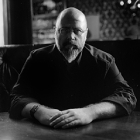
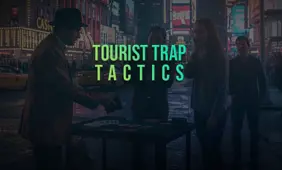
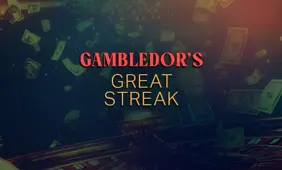
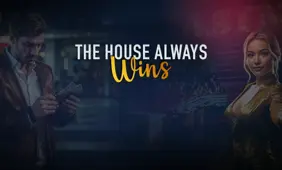
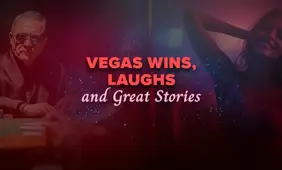
Review this Blog
Leave a Comment
User Comments
comments for R. Paul Wilson On: The Power of Wishful Thinking